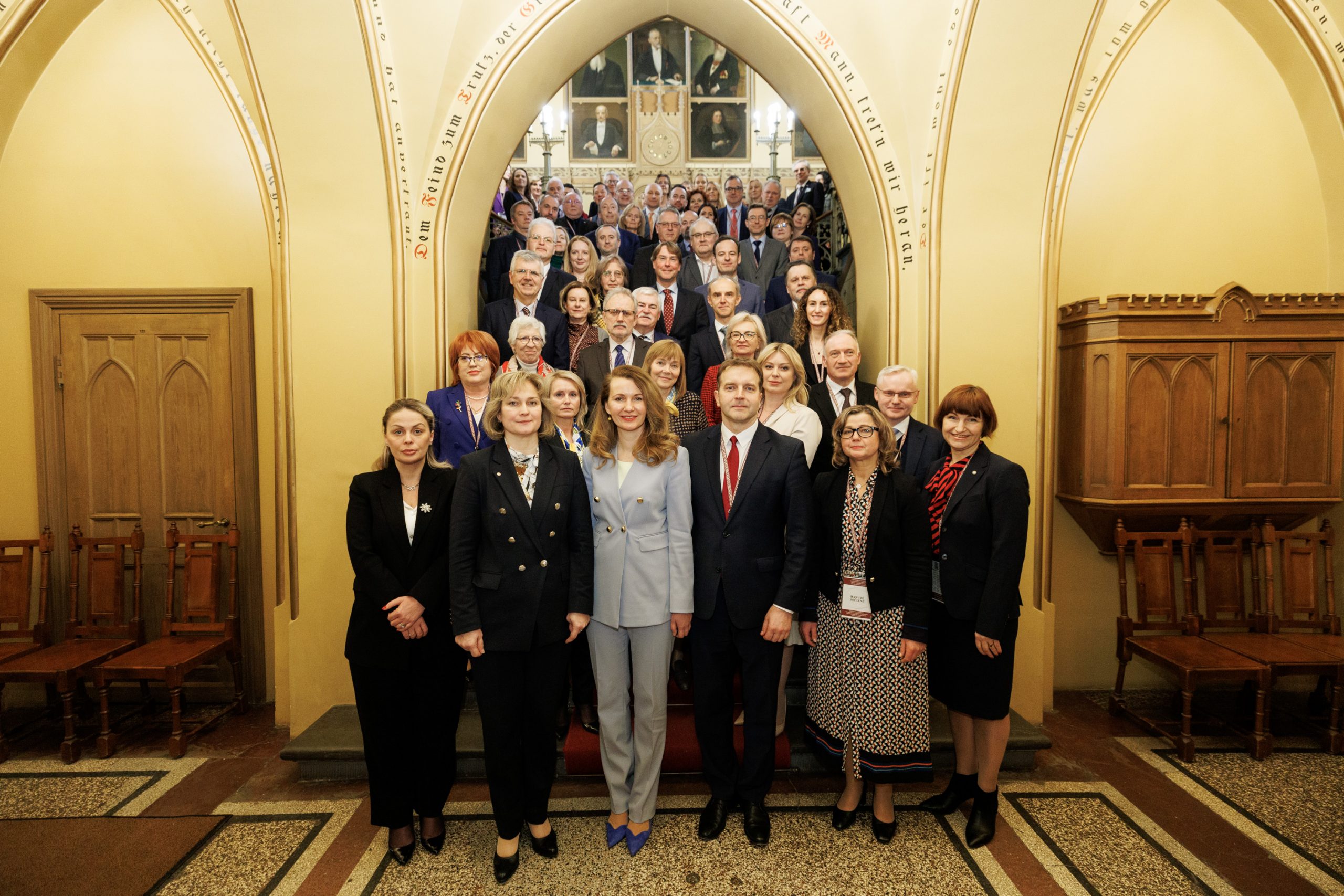Harmonious interaction between the constitutional identities of States and the shared European values furthers protection of the fundamental rights of each European
On 1 March of 2024, the Constitutional Court of the Republic of Latvia organized the international conference “The Role of the Constitutional Courts in Concretising the Shared Values Uniting Europe”. The conference was held to honour the 20th anniversary since Latvia became a Member State of the European Union.
Values like democracy, the rule of law and human rights unite Europe. These values are shared by all Member States of the Council of Europe and the European Union. However, the national constitutional identity of some States may comprise also distinctive elements, for example, the duty to protect the state language. Therefore, the protection of the national constitutional identities and the shared European values is significantly influenced by the balance between them and their harmonious interaction. In this balancing, the dialogue between the constitutional courts and the European Court of Human Rights and the Court of Justice of the European Union plays an important role. Within this dialogue, in turn, the concept of the European consensus is significant, as it reveals the agreement of the majority of Member States on a certain legal issue.
The Conference was opened by President of the Constitutional Court of Latvia Aldis Laviņš and Minister for Justice Inese Lībiņa-Egnere. Aldis Laviņš acknowledged that the constitutional identities of the States, the shared European values and the European consensus were complementary elements, allowing to reach balance in the application of the national law, the European Union law and international law. Inese Lībiņa-Egnere, in turn, referred to human dignity, freedom, democracy, security, equality, the rule of law, human rights and self-determination of states – the values, which are not only the foundation of the Latvian constitutional identity but also, at the same time, are the shared European values.
The first panel discussion of the Conference focused on balancing the constitutional identities of the Member States of the European Union and the Council of Europe with the shared European values. Martin Kuijer, Vice-president of the European Commission for Democracy through Law (Venice Commission) and Judge of the Supreme Court of the Netherlands, Mykola Gnatovskyy, Judge of the European Court of Human Rights, as well as Peter M. Huber, Professor at the Faculty of Law at the Ludwig Maximilians University (Munich), participated in the discussion, moderated by President of the Constitutional Court of Latvia Aldis Laviņš. Participants of the discussion recognised that cases where the national constitutional identities clashed with the shared European values were extremely rare, although, in recent years, had been encountered more often. Referring to the national constitutional identity may not serve as a justification for derogating from, for example, the European Convention for the Protection of Human Rights and Fundamental Freedoms or not enforcing the judgements by the European Court of Human Rights. At the same time, the European Court of Human Rights and the Court of Justice of the European Union may not ignore the judgements by the constitutional and supreme courts of the Member States, protecting the national constitutional identity.
The European consensus and its impact on the European public order was the topic chosen for the second panel discussion. Artūrs Kučs, Judge of the Latvian Constitutional Court, Maciej Szpunar, the First Advocate-General of the Court of Justice of the European Union, George Letsas, Professor of the Philosophy of Law at the University College London, and Elīna Luīze Vītola, Deputy Agent of the Latvian Government before International Human Rights Organisations, participated in the discussion, moderated by Kanstantsin Dzehtsiarou, Professor in Human Rights Law at the University of Liverpool. The discussion led to the conclusion that the concept of the European consensus was a tool for interpreting the Convention, used by the European Court of Human Rights, – if, with respect to a certain legal issue, a consensus has formed in the majority of Member States, then the discretion of other Member States, in deciding on this matter, diminishes. At the same time, also the opinion that the concept of the European consensus was unnecessary and even harmful was expressed. The courts, in embodying values, should follow, exclusively, the principle of the rule of law, without searching for consensus, the development of which could be delayed by various political considerations.
Following the panel discussions, Ineta Ziemele, Judge at the Court of Justice of the European Union, outlined the future outlooks and challenges. She concluded that from a European viewpoint democracy, development, rule of law and respect for human rights and fundamental freedoms are interdependent and mutually reinforcing. It is this view that reflects the European identity. What makes European identity are national identities and the fine dialectics between maintaining differences and building on common values. This is a fundamental part of legitimacy of the entire European project.
At the end of the Conference, Mārtiņš Paparinskis, Professor of Public International Law at the University College London, provided an overview of the main findings presented by the participants. He concluded that Judicial Europe exists both in her infinite variety and, at least at a certain degree of abstraction, through shared values and institutions – which may, of course, be also be shared by other regions. Law is the means for translating institutional perspectives between domestic, international, and European Union courts. Judges also exist as a part of broader evolving social fabric.
Findings expressed at the conference can be found on the Constitutional Court’s Twitter account whereas the recording of the Conference proceedings is accessible on the Constitutional Court’s YouTube channel.




